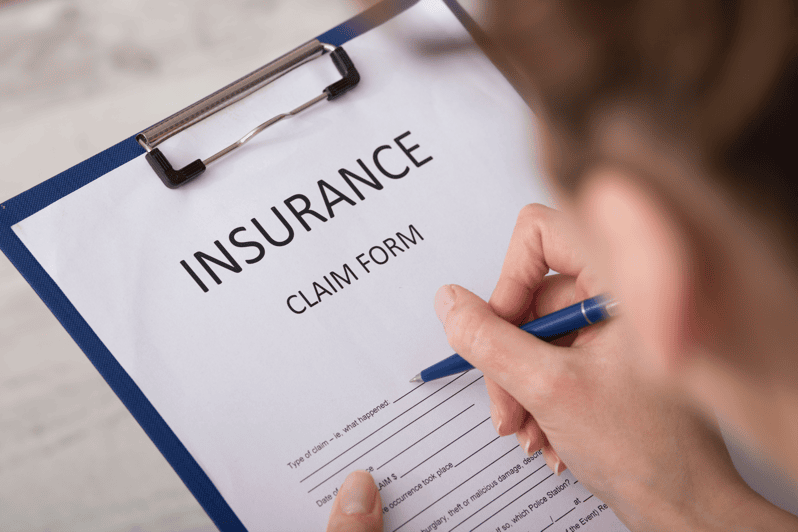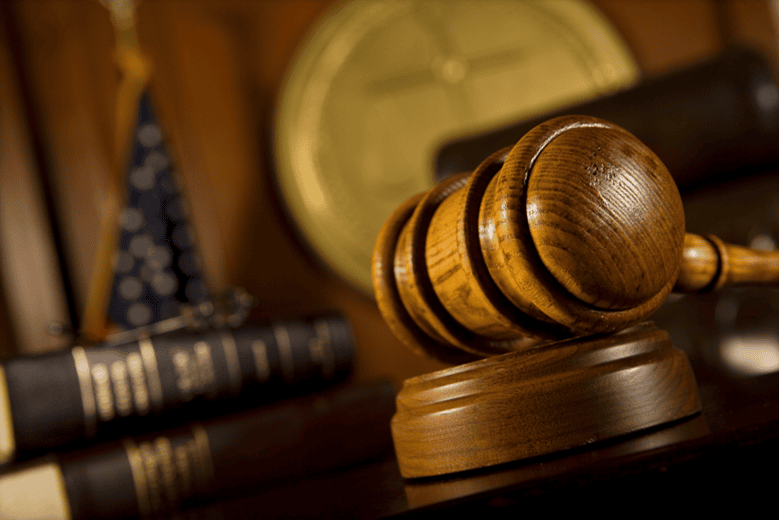Snellings Law PLLC Attorneys are Personal Injury Trial Lawyers
How Insurance Companies Use Comparative Responsibility Against You
Key Takeaways:
- Insurance companies often use tactics like twisting your words, cherry-picking evidence, and delaying investigations to unfairly assign more fault to you.
- Building a strong case requires thorough evidence collection, including police reports, witness statements, and video footage, as well as leveraging expert testimony.
- Working with an experienced personal injury attorney, like Snellings Law, ensures that insurance companies are held accountable.
Insurance companies often try to use comparative responsibility laws to reduce the amount they pay out in auto accident claims. Their goal is to assign as much fault to you as possible so they can minimize your compensation. They may do this by:
- Twisting Your Words: Insurance adjusters might try to get you to admit fault or say something that can be used against you later. These questions are often subtle. They are designed to catch you off guard when you’re feeling stressed or vulnerable after an auto accident. For example, they might ask you leading questions like, “Were you in a hurry?” or “Do you think you could have avoided the accident?” Such questions are not innocent—they’re crafted to create an impression that you were partially or fully responsible for the auto accident, even if that’s not the case. Avoid making a recorded statement and speaking to an adjuster at all if possible.

- Using Incomplete Evidence: Insurance companies may only focus on certain pieces of evidence that support their case, ignoring other facts that might show the other party is more responsible. For instance, they might highlight minor inconsistencies in your account of the auto accident, such as variations in how you describe the timeline. Meanwhile, they will disregard clear evidence that the other driver ran a red light or was texting at the time of the car crash. They may cherry-pick evidence like witness statements that favor their argument and ignore others that contradict it. They use these tactics to reduce their liability and, ultimately, the amount they must pay you in a settlement. It’s a reminder of why it’s crucial to gather evidence as quickly as possible after a crash. Accident scene photos of the roadway, vehicles, and other important details is incredibly helpful. Also, witness statements and police reports are key as well.
To learn more about getting a police report, watch this video from Founding Attorney, Scott Snellings.
- Delaying the Process: By dragging out the investigation, the insurance company might hope you will settle for less than you deserve because you need the money quickly. This delay tactic can be extremely effective. Many accident victims face mounting expenses in the aftermath of an auto accident. Medical bills, car repairs, lost wages, and other financial burdens can quickly become overwhelming. The insurance company may intentionally lengthen negotiations by asking for unnecessary or repetitive documentation. They may claim they need more time to “review the case” or dispute seemingly straightforward details. They might also delay communication or fail to return calls promptly, leaving you in limbo and feeling powerless. These tactics are designed to frustrate and exhaust you. The insurance company is hoping that your immediate need for money will outweigh your ability to hold out for a fair outcome.
How Snellings Law Minimizes the Impact of Comparative Responsibility
At Snellings Law, we know how challenging it can be to prove your auto accident case when comparative responsibility is involved. That’s why we take a strategic approach to ensure you get the resolution you deserve. Here’s how we help:
1. Gathering Strong Evidence
We thoroughly investigate the accident to gather all the evidence that supports your claim. By building a strong case, we can push back against the insurance company’s efforts to assign more fault to you.
This process begins with an in-depth review of police reports. Police reports often contain critical details about the auto accident. By carefully analyzing these reports, we identify inconsistencies or inaccuracies that could unfairly shift blame onto you. We also request open records files in most cases to retrieve additional investigative information.
Additionally, we gather eyewitness testimony to provide firsthand accounts of what happened. Witnesses can offer valuable perspectives. They can confirm the other party’s reckless behavior or verify that you were driving responsibly. These statements can play a pivotal role in disproving claims made by the opposing party or their insurance company.
In today’s digital world, traffic cameras and surveillance footage can be game-changing pieces of evidence. Dash cam footage can also be extremely useful to establish liability. We work diligently to locate and obtain any video footage of the car crash. This footage often provides undeniable visual proof of what occurred. It helps to paint a clear and accurate picture of the events leading up to the auto accident.
By gathering evidence, we can build a compelling case that pushes back against attempts to assign you a larger share of the blame. This approach ensures that the truth of the accident is fully revealed so that you can get the resolution you deserve.
2. Expert Testimony
In many personal injury cases, expert testimony can make a big difference. We work with medical experts, auto accident reconstruction specialists, and other professionals to prove that your injuries were a direct result of the other party’s negligence. These experts can also help show that your level of fault was minimal or nonexistent.
Medical experts play a huge role in demonstrating the severity of your injuries and linking them directly to the auto accident. They can explain how the trauma occurred and why it was a direct result of the other party’s negligence. They can also provide details about the long-term effects of your injuries. Their testimony helps to refute any arguments that downplay your injuries. They also can shut down any suggestions that your injuries were preexisting or unrelated to the auto accident.
To further solidify your case, we work with a network of experts who specialize in accident reconstruction and analysis. These professionals can recreate the scene of the car crash. They use determining factors such as speed, vehicle positioning, and points of impact. Their findings can definitively demonstrate the other party’s negligence and highlight why you were not at fault.
Beyond medical and reconstruction experts, we may also engage additional professionals. We may use engineers to examine mechanical failures. Economists to calculate the long-term financial impacts of your injuries can help. Vocational specialists can also demonstrate how the auto accident has affected your ability to work. Each expert brings a unique perspective that can address specific elements of your case and strengthen your overall argument.
By using expert testimony, we make sure that every detail of your auto accident case is thoroughly analyzed and presented in a compelling, credible way. These experts help clarify complex issues for judges, juries, and insurance adjusters. They help make it clear that your injuries were caused by the other party’s negligence and that your level of fault is minimal or nonexistent.
3. Negotiating with Insurance Companies
We also handle all communication with the insurance company on your behalf. Insurance adjusters are trained to negotiate in their company’s favor. At Snellings Law, we have years of experience dealing with these tactics. We know how to negotiate for a fair settlement and won’t back down when insurance companies try to assign too much fault to you.
When insurance companies attempt to assign too much fault to you, we step in with a clear and well-prepared counterargument. This includes presenting the facts of the case, expert testimony, and other evidence to demonstrate the true circumstances of the accident. We don’t allow insurance adjusters to take advantage of your situation or use their experience against you.

Our negotiation process is thorough and determined. We don’t settle for less than what you’re entitled to and are prepared to push back against any unreasonable offers. At every stage of your case, our priority is to protect your rights and fight for a resolution reflecting your claim’s true value.
You can focus on your recovery by entrusting Snellings Law to handle communication with the insurance company. Our experienced team is dedicated to ensuring you get a fair outcome, no matter how challenging the negotiations become.
4. Taking Your Case to Court
At Snellings Law, we understand that not all cases can be resolved through negotiation. If necessary, we are fully prepared to take your case to court. Our team has extensive experience presenting personal injury cases in front of judges and juries. We will fight to ensure that you are not unfairly blamed for the auto accident and that you receive the resolution you are entitled to under the law.
Our attorneys have extensive experience in courtroom advocacy. We know how to craft persuasive arguments backed by strong evidence. From the moment we take your case, we begin preparing as though it will go to trial. We gather evidence, work with expert witnesses, and demonstrate the other party’s negligence. We also anticipate the opposing side’s arguments. This is done by preparing well-thought-out strategies to counter any attempts to shift responsibility onto you.

In court, we don’t just present evidence; we tell your story. We paint a vivid picture of how the car crash occurred, the impact it has had on your life, and why you deserve fair compensation for your injuries and losses. From physical pain and emotional suffering to financial burdens, our goal is to help the judge and jury understand the full scope of your situation.
By taking your case to court, we aim to secure the resolution you are entitled to under the law. We are skilled at navigating the complexities of the courtroom, and we won’t back down when fighting for what’s right. At Snellings Law, we are your advocates every step of the way, and we will fight tirelessly to achieve the best possible outcome for you.
Don’t Let Comparative Responsibility Laws Undermine Your Claim—Snellings Law Is Here to Help
Texas’s comparative responsibility laws can significantly impact your personal injury case, especially if the insurance company tries to assign a portion of the blame to you. These laws can reduce the amount of compensation you receive or, in some cases, prevent you from recovering damages altogether. That’s why having an experienced personal injury attorney on your side is essential to fight for the resolution you deserve.
If you’ve been injured in an accident and are worried about how comparative responsibility might affect your case, contact Snellings Law today for a free consultation. We’ll help you navigate the legal process and ensure your rights are protected every step of the way. Call us at (214) 387-0387 to discuss your case today.

How it works:
- Call us now or give us your basic information in the Free Strategy Session box
- If your case is something we cannot help you with, we will do our best to get you the information of someone who can.
- If we can potentially help you, we will schedule a Free Strategy Session
There is zero obligation. We want all injury victims to understand their rights and the process.
After your Free Strategy Session, you will understand where insurance companies can set traps for you and what needs to be done to avoid these traps. You will also understand the personal injury process as well as how we can help, or if you need the help of an attorney. The strategy session typically will have one of three outcomes. You:
- Decide to move forward with our law firm.
- Decide to think about it, and we will be available to answer your questions.
- Say, “I’ve got this,” and decide you do not need an attorney.
Again, there is zero obligation and you will be informed and understand your rights and the process. We want to arm you with knowledge to avoid the traps insurance companies set to harm your claim.

